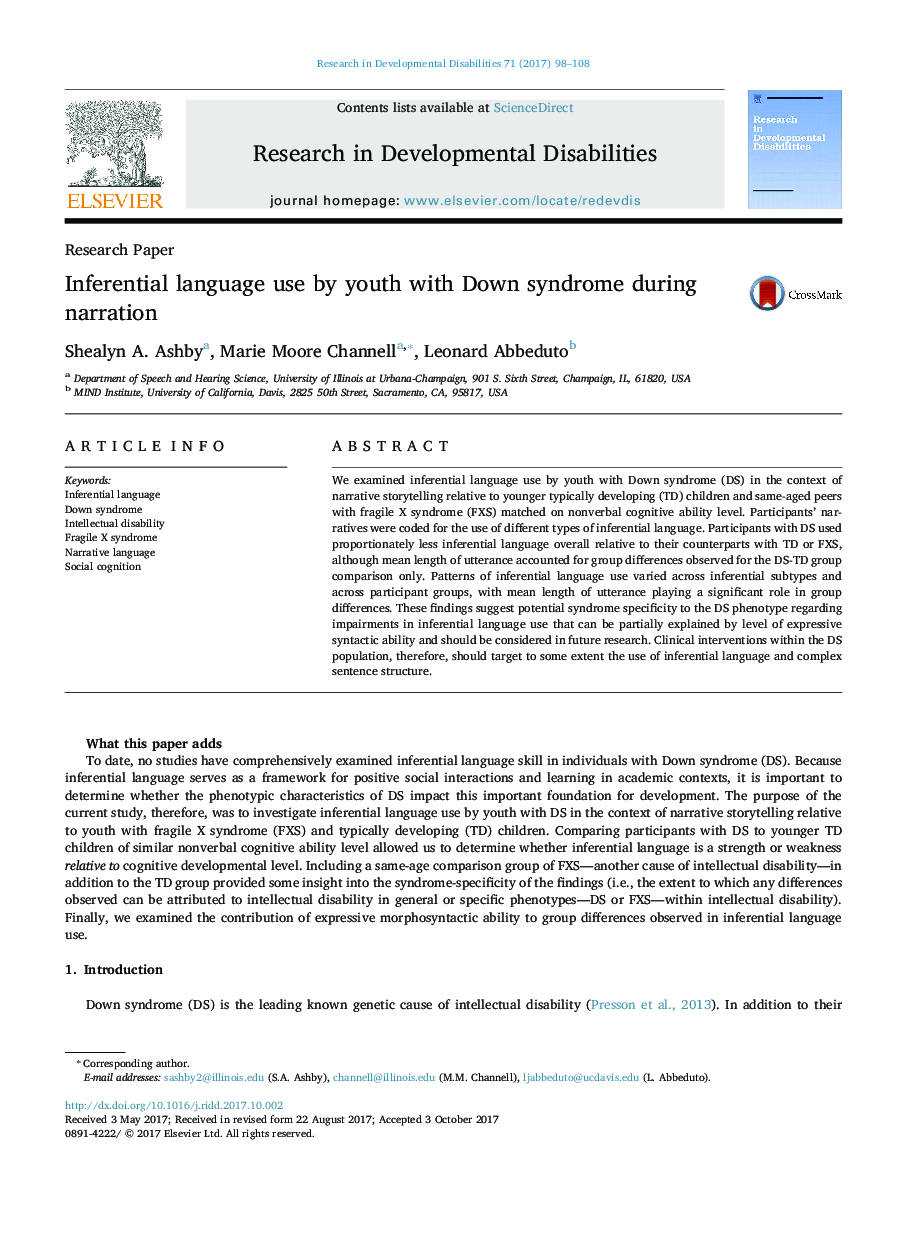| Article ID | Journal | Published Year | Pages | File Type |
|---|---|---|---|---|
| 4940972 | Research in Developmental Disabilities | 2017 | 11 Pages |
Abstract
We examined inferential language use by youth with Down syndrome (DS) in the context of narrative storytelling relative to younger typically developing (TD) children and same-aged peers with fragile X syndrome (FXS) matched on nonverbal cognitive ability level. Participants' narratives were coded for the use of different types of inferential language. Participants with DS used proportionately less inferential language overall relative to their counterparts with TD or FXS, although mean length of utterance accounted for group differences observed for the DS-TD group comparison only. Patterns of inferential language use varied across inferential subtypes and across participant groups, with mean length of utterance playing a significant role in group differences. These findings suggest potential syndrome specificity to the DS phenotype regarding impairments in inferential language use that can be partially explained by level of expressive syntactic ability and should be considered in future research. Clinical interventions within the DS population, therefore, should target to some extent the use of inferential language and complex sentence structure.
Related Topics
Life Sciences
Neuroscience
Behavioral Neuroscience
Authors
Shealyn A. Ashby, Marie Moore Channell, Leonard Abbeduto,
